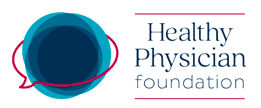The MSDC Physician Health Program is a private, confidential, non-disciplinary program that works to advocate for the health and well-being of all physicians in the metropolitan Washington, DC, area and to safeguard the public.
The Program is HIPAA compliant and protects the confidentiality of participant records as set forth under DC and Federal law. The program is administered by the Medical Society of DC and is separate from the DC Board of Medicine. Read more in the MSDC
PHP brochure on this page.
For a confidential consultation for your or a colleague that may benefit from our help, please call (202) 466-1800 x102 or
email us. This is not an emergency service;
for emergencies please call 911 or the National Suicide Prevention Lifeline at 1-800-273-TALK.
Presentations
The PHP can help hospitals meet Joint Commission requirements by providing information on physician impairment at medical staff meetings or grand rounds. An overview of the services or a CME lecture on physician impairment may be scheduled by contacting Robert Hay Jr. by
email.
Support Your Colleagues
Do you want to help support your fellow physicians going through their own struggles? The Healthy Physician Foundation was established to fund physician health and addiction programs. Your generous gift allows us to continue supporting those physicians
in most need. Donate using the button below.
DONATE
News Stories About Physician Addiction and Health Programs
New AMA Podcast on Strategies for Managing Suicidal Ideation
Dec 6, 2021, 10:09 AM
by
MSDC Staff
A new podcast from the AMA features speakers from Weill Cornell Medicine and the American Foundation for Suicide Prevention.
As part of its AMA Moving Medicine series, the American Medical Association has released a new podcast that is timely to the current medical environment. Suicide experts share current data on suicidal ideation, the importance of screening early and often, and the connection between child mental health and mental health as an adult. Hear how a pediatrician implemented suicide screening, prevention efforts, risk assessment into their care setting and more.
See the transcript here.
Listen to the podcast here.


